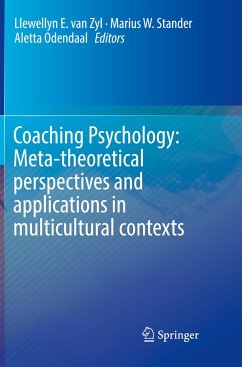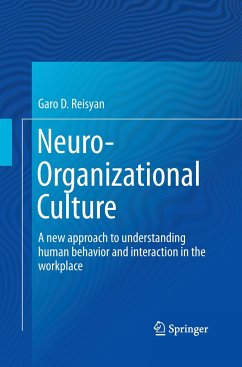
Theoretical Orientations and Practical Applications of Psychological Ownership

PAYBACK Punkte
49 °P sammeln!
This book shares the theoretical advancements that have been made regarding psychological ownership since the development of the construct and specifically the practical applications within multi-cultural and cross-cultural environments. Enriched by empirical data and case studies by subject specialists in the field, this book serves as a cutting-edge benchmark for human resource management specialists, industrial psychologists, as well as students in positive organizational psychology and professionals in other fields. This book follows an in-depth view of the most recent research trends in p...
This book shares the theoretical advancements that have been made regarding psychological ownership since the development of the construct and specifically the practical applications within multi-cultural and cross-cultural environments. Enriched by empirical data and case studies by subject specialists in the field, this book serves as a cutting-edge benchmark for human resource management specialists, industrial psychologists, as well as students in positive organizational psychology and professionals in other fields. This book follows an in-depth view of the most recent research trends in psychological ownership. Offering practical tools of how the psychological ownership of employees could be developed in the workplace to not only enhance the performance of organisations, but to increase the commitment of employees and influence the intentions of skilled employees to remain with their organisations.














